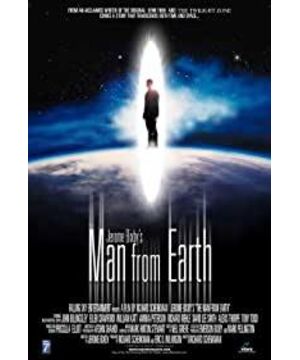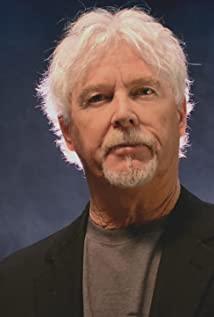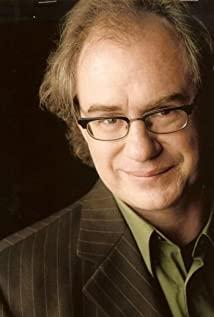The first time I watched it, I felt very boring. First, I felt distracted, and the progression and evolution of the plot (mainly the problems) was levelless or even illogical. Second, it is very obvious, and has been criticized by many people. The question is not directed at questioning John's identity, and it feels that the questions are very low. ---- In fact, these two points can be combined into one point. Since the whole film is constructed in the form of a question-and-answer test (some people even compare it to a college debate contest), then the best way to advance the plot cleverly by asking questions , But the film completely screwed up this idea, and threw out a bunch of unrelated issues. Gradual progress, climax, and lack of transition disrupted the order of telling a good story, similar in form, such as 12 angry men. "Stories that convince people by logical reasoning" are simply incomparable.
So when I watched it for the first time, I only felt disappointed with this film, which has been highly regarded for so long (there are always netizens recommending this film "discovering the new world" in 2008).
But in view of the fact that the first time the impression was so shallow that it was impossible to discuss the film with others, I decided to postpone it and review it again. This time I feel a lot better. Expect different reasons.
I found that many of the problem settings in this film are reasonable - as long as they don't follow the standards of the college debate, that is, the standard that must be refuted by the other party in the end.
For example, the initial setting was actually answered by the anthropologist, archaeologist, and biologist himself--the caveman's intelligence and knowledge, his body and environmental adaptability, and the reason for his immortality-- --- They thought this was a setting of a science fiction novel; for example, the questions asked by the female student were relatively simple or even meaningless, which was in line with her identity; the first question from the psychologist was always John's self-identification- --- When did you know your own identity (the first time it was a caveman, the second time it was Jesus), and later he also asked the classic question of how John recognizes his father, and some of my second time Questions I also want to ask when I look at it: How does John overcome his loneliness in such a society (feeling lost, a lot of emotional loss, no real relatives, friends, lovers), alienation (outlier, estrangement, feeling Does not belong to this race), bored, etc.
These questions have become very interesting. When I no longer focus on the development of the plot or just as an outside curiosity, I think about these issues as a friend who cares about John-this can also be seen as The people in the film didn't mean to ask some of the reasons why John's detailed problems were easy to debunk (such as how do you forge your identity, how to escape so many disasters, etc.). Haha, this is the benefit of science fiction fans, who are used to imperfect settings, and then just enjoy the vast yy in an existing setting.
Let’s talk about some of the ideas or yy points I admire in the film: In the age before the ocean, I saw the British Isles from southwestern France, with mountains standing on the other side of the bottomless gorge; the ice age is the first human being. This time I realized that the low latitudes and plains were warmer; John went to the place where the sun rose, thinking that it would be warmer; he experienced the birth of art - early humans hunted based on murals painted by a tribe; he experienced humans from Hunting to planting, learning, the growth of knowledge, the emergence of cities. . . He traveled through different regions, pretending to be different races, sometimes walking alone and sometimes having to integrate into the group. He mentioned it more than once, looking up at the starry sky, with expectations and doubts about the gods, he really likes the idea that humans can move to Mars ---- makes me very fond of this character.
They also discussed people’s memories of each other's position--you can’t go back to your hometown, it’s never possible; they explored whether people’s perception of time is an illusion; people’s cognition of natural sciences--sometimes scientific conclusions violate Our own feelings, and is it possible that a theory closer to the truth will violate our current scientific understanding? There are too many things that we don’t know and cannot explain in this world, and the thinking of a person, an ordinary person, cannot surpass his own time. Even if he has 14,000 years of experience, his knowledge is still limited to the time he lived in, and even His perception of the era he has experienced may still be just a person's "view" of the world that he knows nothing about. John also proposed that new scientific concepts are often the first to be hypothesized through artistic imagination. Of course, there is also a psychologist who revised his conclusion that John is not crazy for the second time: if a person firmly believes what he is like, it is entirely possible for him to behave rationally and insist on this conclusion, and A person who is knowledgeable to a certain level is entirely possible to convince others (but to be honest, this idea is not new).
There are also some teasing things in academia: in every field there are "the guys that you want to choke to death against your own opinions"; "you will soon doubt what you are hearing now, thinking I have a mental problem or because of this. Joking and annoying" ---- People are so deeply resistant to things beyond the scope of their own understanding. "We knew so little."
There are some things that are very worthy of yy: such a person, would he keep anything deliberately (no); how does he view the evolution of the entire human race (slowly, humans are always repeating the same Mistakes); his emotional appeal, watching the passing of other people in his life one by one, numbness or pain? Time is getting faster and faster, and it is always another hundred years in the blink of an eye. . . (I like that description very much, "Those people are like ocean waves, like waves of wheat, blowing in the wind.") Also, one sailed with Columbus, sought advice from Sakyamuni, and was friends with Van Gogh. . . what. . The life of such a person. . . You can buy AT&T stock at 5cent and countless bigamy history. . .
One's self-recognition, from realizing one's own difference, then questioning oneself, to turning to faith to seek answers, whether one has a mission. . . This process seems very real.
Another assumption that also seems very real is that when you meet someone who may be the same as yourself, the reaction to each other will actually be suspicion, and it will be multiple suspicions (it's strange if he believes me). Fortunately, this hypothetical film gave an answer, and that person is very likely to be real.
There are also some points/topics (topic), I think the film is relatively clumsy: for example, people's jealousy, rejection or even hatred of people/things that are different from one's own/self-understandable. Although in the process, small topics such as mutual trust and "Are you secretly laughing at us" are inserted from time to time, the overall change in everyone's attitude towards John is due to the fact that "people are too mixed" and the problem is set up. Disordered or not thinking about order at all, it just made this change process very unconvincing. The other is some very obscure environmental protection tendencies.
Oh, when I think about it, there are many wonderful tricks, such as jonny walker. For example, psychologists always start with "Talk about your mother". The cave people love fireplaces from childhood memories, and ignorant girl students. In a word: Oldman is a pun. In addition, the biologist obviously used it to adjust the atmosphere. His riddles, the ten commandments of ten words, and the coexistence of multiple religions in the family are all very interesting.
Finally, talk about religion. Religion is obviously a major topic of the film. The first half is just inserted from time to time about the formation of the gods and spirits of primitive humans. Faith is the way to explain the first driving force (the source). Little gimmicks like the origin and evolution of religion, until John throws out the big surprise, this film is considered to have reached its climax. The topic of criticizing religion is not new, and the opinions and arguments are not specific, but the final footing is very interesting:
1) Religion>is a kind of cognition>for us that cannot be explained>no, it is just that we cannot explain, everything There is always a law> So what is more against the law than the existence of a man who has lived for 14,000 years?
2) The emergence of religion, "belief in doctrine does not bring piety, it is caused by a wrong understanding (people think that it must be piety)."
3) Deification - to "deify" people, such as the evolution of other things in history The same, it's just the work of time.
4) Faith comes from thinking, and people who don’t think don’t have faith.
5) Religion is always selling something, hope, survival rules, etc. The "Old Testament" sells fear and crime, and the "New Testament" sells the moral code of being good.
6) Once there are cracks in beliefs, once doubts appear, even if they are temporarily denied, they will never cease to be troubled.
I treat this film with the same feelings that anthropologists say about John in the film: We have two simple choices. We can be angry about this, or we can be rational, challenge the logic, or simply relax and enjoy. , I can wait to listen critically, but I don’t have to accept anything.
View more about The Man from Earth reviews











